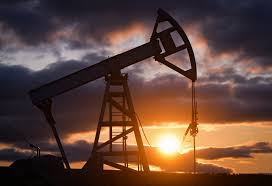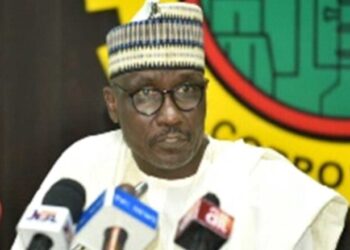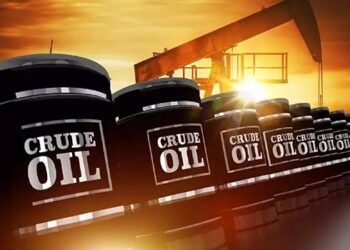The growing deterioration in the relationship between major players in the oil industry, particularly, bordering on the appropriate pricing for the locally produced Petrol could impact negatively on Nigeria’s economic recovery project by the government, stakeholders have warned.
Specifically, they argue that the ‘hide and seek’ game by the nation’s oil company, Nigerian National Petroleum Company Limited, (NNPCL, the seeming hostility by the regulator, the Nigerian Upstream and Downstream Petroleum Regulatory Authority (NMDPRA) against Dangote Refinery are capable of scaring away investors and as well derail government on its commitment to revamp rhe economy.
They also contend that the development is further alienating the people and indirectly widening the trust deficit.
Besides, the dramatisation of the pricing, resulting in higher prices of the local peoduct than the imported ones seems to them that they are some certain interests that want some Nigerians to be in perpetual hardship as they may be possibly enjoying some financial benefits from the apparent confusion.
Also, the ensued national embarrassment ocassioned by
allegations by
NMDPRA few months ago that Dangote’s refined products were inferior to imported ones, would have taken a dangerous dimension but for quick intervention of the public, even as it was later confirmed that the regulatory authority, indeed approved the firm’s in-house laboratory for the testing of crude oil products.
NNPCL, on the other hand seems to be neck-deep in ‘preservation’ of self or external interests as despite, millions of dollars expended on the moribund refineries, is still in self delusion through false hope and by continuous and endless shifting of commencement dates for the operationalization of these refineries for more than five times.
As at today, Nigerians are yet to know the exact amount of sale and purchase agreement of Petrol between Dangote and the NNPCL, a development that continues to further dent the image of the country, considered by many investors as lacking the needed transparency and integrity for both local and international investment competitiveness
An economist Muda Yusuf has described as worrisome, the ‘dramatisation’ of petrol prices between Dangote Refinery and the NNPCL
Yusuf made the remark on Monday in an interview with Channels Television’s The Morning Brief, program.
According to him the drama could scare investors away and affect public perception of this new alternative.
“I’m worried about the dramatisation of the cost the NNPCL is buying from Dangote. Coming to the public space to exchange the things we’re hearing. I don’t think it’s good for the economy, it’s not good for our perception and it’s not good for investors’ confidence,” Yusuf said.
The economist also said that Nigeria can’t walk away from the issue of petrol subsidy removal yet because of the low social safety net for the poor and vulnerable in the country.
Yusuf, the Managing Director of the Centre for the Promotion of Private Enterprise (CPPE), said even after the presidential statement on May 29, 2023, that the subsidy is gone, the NNPCL admitted to shouldering cost differentials with imported petroleum products.
He said, “We cannot walk away so quickly from this problem of subsidy otherwise it would make life extremely difficult. Things are already very difficult.
“Up until now the NNPCL was subsidising although progressively the level of subsidy is being reduced which is fine, but to talk of a complete deregulation of the whole system in an economy without a social safety net will not be appropriate at all.”
He stated that the citizens are economically overstretched, adding that the hike in the pump prices of petrol has made the situation worse.
“The economy is about human beings and we need to recognise that because we are driving the citizens almost to their limits,” the economist said.
According to him, total deregulation is not possible in a country like Nigeria which doesn’t have a safety net for the citizens to fall back on.
The economist proposed that the government reduce the demand for imported products through import substitution across all sectors of the economy.
“If we’re able to move that pressure away, it will have a significant impact on the exchange rate. If progressively we can look inward and reduce import we’ll be making progress,” he added.
Femi Falana, Senior Advocate Of Nigeria (SAN) and Human Rights Activist observed that it is ‘illegal” for NNPCL to determine prices of Premium Motor Spirit also known as petrol after deregulation.
A statement released by Falana on Tuesday said the action of the NNPCL violates section 205 of the Petroleum Industry Act (PIA).
He said, “On September 5, 2024, the Nigerian National Petroleum Corporation Limited (NNPCL) stated that foreign exchange (forex) illiquidity had been a significant factor influencing the fluctuation in prices of Premium Motor Spirit (PMS) governed by unrestrained market forces, as provided for in the Petroleum Industry Act (PIA).
“The NNPCL was explaining the pump price of PMS imported into the country at the material time. Specifically, the Executive Vice President of Downstream NNPC Ltd Mr. Adedapo Segun, explained that Section 205 of the PIA, which established NNPC Ltd, stipulated that petroleum prices were determined by free market forces. According to him, “The market has been deregulated, meaning that petrol prices are now determined by market forces rather than by the government or NNPC Ltd. Additionally, the exchange rate plays a significant role in influencing these prices.”
‘But contrary to the well-publicised statement, the NNPCL has fixed the price of PMS produced by the Dangote Refinery and Petrochemical Company Limited. The action of the NNPCL is a violent contravention of section 205 of the PIA, which stipulates that the prices of petroleum products shall be determined by market forces.
“Furthermore, since the petrol sold by Dangote is not imported into the country but produced at the Lekki Economic Free Trade Zone, the NNPCL can not justify the sale of petrol at N950 per litre without freight cost, lightering cost, jetty depot fees, storage fees, foreign exchange costs, NPA charges: NIMASA charges, Customs duties etc. In fact, by selling the petrol produced by Dangote Refinery at a higher price, the NNPCL has confirmed its resolve to continue to sabotage the national economy through the reckless importation of cheaper petrol from foreign countries at a cost that the nation cannot afford.
ALSO READ:Disquiet Over Union Bank’s Consolidation Status
“The NNPCL has justified the hike by saying that petrol is sold in dollars by the Dangote Refinery. Why should the NNPCL buy petrol in dollars since the Federal Executive Council (FEC) has directed that crude oil be sold to Dangote Refinery in Naira? Are the management staff of NNPCL and Dangote Refinery not aware that it is a criminal offence under section 20 of the Central Bank Act to refuse to accept the naira as a means of payment for any transaction in the country?
“Furthermore, the exclusive purchase of petrol from Dangote Refinery by the NNPCL is completely at variance with the letter and spirit of section 205 of the PIA. Therefore, other marketers should be at liberty to purchase petrol directly from Dangote Refinery and distribute to outlets in all the states of the Federation. Henceforth, the Federal Competition and Consumer Protection Commission should stop the NNPCL from exercising monopolistic control of the petrol produced by Dangote Refinery.”
Falana’s outburst was based on the commencement of PMS lifting by the NNPCL from the Dangote Refinery on Sunday, with the oil company announcing that the product would sell for ₦950 per litre in Lagos State and its environs, and above ₦1000 per litre in states such as Borno.
Also, the Independent Petroleum Marketers Association of Nigeria (IPMAN) on Monday, criticised NNPCL, saying it was not right to sell petrol lifted from the Dangote Refinery higher than imported ones.
IPMAN National Welfare Officer, John Kekeocha, stated this on Channels Television’s The Morning Brief breakfast program.
“If NNPC can sell Dangote products higher than the imported products then it doesn’t make sense. What is the celebration we are having all these while then?” he queried.
Friday Ameh, Lagos based energy analyst decried the high level of impunity in the country as government officials continue to act and speak at variance with the expected decorum and extant laws.
“It is unfortunate that some appointed government officials have become laws into themselves as nobody can challenge them, since they feel they are in the ‘good books’ of the powers that be. What has been happening in the oil industry, and unfortunately and seemingly unchecked, leave much to be desired, particularly with the initial high expectations,” Ameh said













